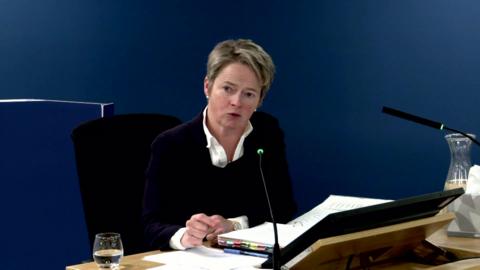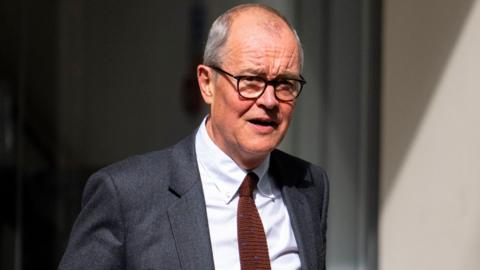Baroness Harding, a former retail and telecoms executive who was appointed to lead the test and trace system in May 2020, said data in the first year of the pandemic suggested individuals were not being tested because they were "scared of the consequences of isolation".
"To be honest, it was intensely frustrating," she told the inquiry, adding that she found reading messages from the time "quite distressing".
"We did try really hard to persuade ministers that [increased financial support] would be a good thing, not just for the individual wellbeing of those disadvantaged people, but also economically, as this was one of the ways you could have less economic harm for the country as a whole," she added.
She said she felt chancellor Rishi Sunak had rejected her arguments as a "point of principle" because he did not want to create what could be seen as a new welfare benefit.
"I don't think there was any amount of data and analysis that I could have put that would have changed his mind," she said.
"I think you can hear my frustration as I say it."
Rishi Sunak has not been called to give evidence to this three-week section of the Covid inquiry, which is looking at testing, contact tracing and isolation policies.
But, last week, Dan York-Smith, a senior civil servant in the Treasury, said a number of economic measures were brought in to support workers, including extensions to statutory sick pay and the furlough scheme.
He said the chancellor was particularly worried about creating "perverse intensives" which might have increased the risks of fraud, or meant some workers could be paid more to self-isolate than in wages.

